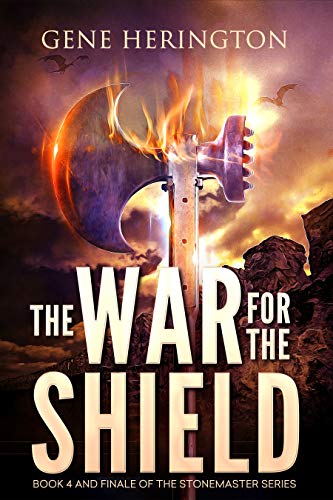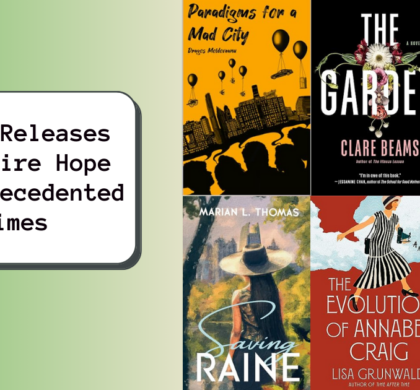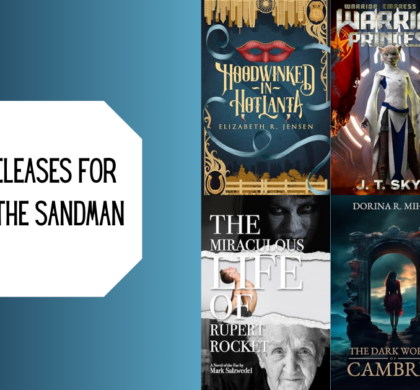Interview with Gene Herington, author of The War for the Shield
14 Jan 2019
What can you tell us about your new release, The War for the Shield?
The protagonist is a Silver Lion mercenary named Pencheval. He came to the valley in which this story takes place to find some respite, and instead finds himself in the middle of an invasion. A goblin horde led by The Stonemaster has conquered half the valley, and most of what’s left is uncontested. Pencheval and the defenders occupy the only place the goblins can’t easily take, a large and heavily fortified castle called The Shield of Athesiene.
Since taking the castle is all that remains until the horde can claim the entire valley, they’re moving on it, and that’s the war mentioned in the title. Pencheval fought to goad them into this because he believed they would break themselves on its walls, but the horde found new weapons they can use against the defenders of which he’s unaware. He spends most of the book trying to stop them because they’re enough to overwhelm the defenders at the castle if he fails.
The horde strips everything it touches bare. If it takes The Shield of Athesiene, everyone there will die, and a pass it protects will be left wide open so that the horde can invade southward come the next spring. Pencheval and the defenders are trying to prevent this and defeat the goblins utterly.
What or who inspired you to become an author?
I’ve enjoyed writing since elementary school and did it on and off for years. This series started as a concept for a main character, and the ideas about his world coalesced into a whole over the course of several months. I began writing the ebook series shortly thereafter and pursued its completion ever since.
What’s on your top 5 list for the best books you’ve ever read?
“Meditations” by Marcus Aurelius was very good. It just took some time to read it all, not because it’s long, but because his opinions and observations have so much substance it takes time to digest it all. Miyamoto Musashi’s “The Book of Five Rings” was short as well but remarkably insightful. “The Great Gatsby” by F. Scott Fitzgerald has incredible wordsmithing. The use of language is the same reason I like Jane Austen’s “Pride and Prejudice” and Tolkien’s “The Hobbit” even if both books are lighter reading.
Say you’re the host of a literary talk show. Who would be your first guest? What would you want to ask?
My first guest would be Dan Abnett. I’d ask him how he decided on the combination of investigation, action, and space opera he used for the Eisenhorn books. It works very well.
What’s your favorite thing about writing?
The wordsmithing. It’s enjoyable to get bursts of inspiration about arrangements of words while giving the stories a more anachronistic feel. Plotting the stories, and finding original ways to make the scenes unfold in particular, is a close second.
What is a typical day like for you?
My typical day is working at a full time job unrelated to writing. Fortunately, I can telecommute and work from a computer at home. The writing and related project work, such as research and generating ideas, happen in the evenings and on the weekends. It’s a good arrangement and I’m grateful for it.
I also enjoy reading and keeping up with current events daily. Most of my reading lately has been non-fiction. When I do read fiction I trend towards the classics.
What scene in The War for the Shield was your favorite to write?
One of the characters, Nan, is grappling with the realities and consequences of her new abilities. She’s slowly rising to the challenge, and this scene centers around her coping with her new title. It constantly reminds her that her life has changed and it stings every time she hears it. She reflects on it and resolves not to let it overwhelm her any longer. It follows Nan’s stream of thought to a partial resolution of her inner turmoil in a way that just clicks for me, and that’s why it’s my favorite.
Do you have a motto, quote or philosophy you live by?
Persevere. If at first you don’t succeed, determine what you did wrong, fix it, and then try again. Keep going despite unexpected setbacks and problems. This philosophy has worked well for me since I adopted it.

Gene Herington is the author of the new book The War for the Shield
Connect with Gene
Author Page Buy The BookBuy The Book
Sign up for our email and we’ll send you the best new books in your favorite genres weekly.
Related
grant
Recommended Posts

Books to Read if You Like The Hating Game
19 Apr 2024 - Books to Read if You Like..., eBook, News, Romance


